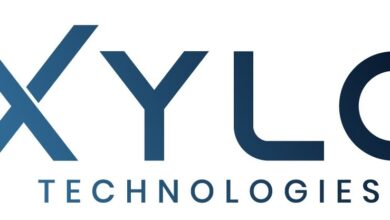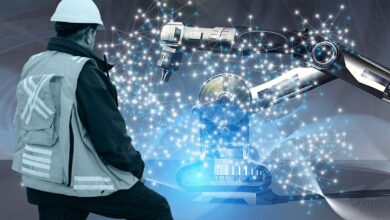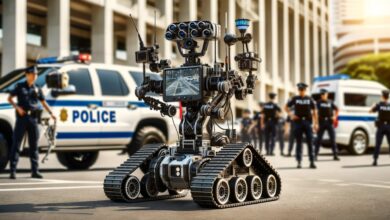How Robotics-as-a-Service is Redefining Automation

How Robotics-as-a-Service is Transforming Guest Experiences
In the ever-evolving landscape of hospitality, technology is emerging as a key driver of guest satisfaction and operational efficiency. Among the most exciting advancements is the rise of service robots, and the innovative delivery model known as Robotics-as-a-Service (RaaS).
As Bill Gates once said, “The future of all hotels will be robots.” While robots may not be fully integrated into hotel operations just yet, RaaS offers a compelling solution for hotels to elevate guest experiences and optimize operations.
The Evolution of Service Robots in Hospitality
Gone are the days of robotic butlers confined to science fiction. Today, service robots are seamlessly integrated into hospitality experiences, from housekeeping and room service to guest interaction and concierge services.
Advancements in AI, machine learning, and sensor technology have empowered these robots to navigate complex environments, interact with guests, and perform a variety of tasks with increasing accuracy and efficiency. This frees up valuable staff time, allowing them to focus on personalized guest interactions and exceptional service delivery.
Introducing Robotics-as-a-Service (RaaS) for Hospitality
Traditionally, acquiring and deploying robots involved significant upfront costs, along with ongoing challenges in maintenance, software upgrades, and scalability. RaaS addresses these concerns by offering robots as a subscription-based service, similar to software-as-a-service (SaaS) models.
This is particularly beneficial for the hospitality sector, which often experiences seasonal fluctuations in demand. With RaaS, hotels and restaurants can access the latest robotics technology without substantial capital investment. They simply pay a subscription fee based on usage, covering hardware, software, maintenance, and support services. This not only lowers the barrier to entry but also provides flexibility and scalability, allowing hotels to adapt their robotic workforce based on occupancy rates and guest needs.
Key Benefits of RaaS for Hospitality
- Enhanced Guest Experience: Robots can handle repetitive tasks like luggage delivery, room service, and amenity restocking, allowing staff to prioritize guest engagement and personalized service. Additionally, robots can provide multilingual support, catering to a wider range of guest demographics.
- Increased Operational Efficiency: RaaS robots can streamline housekeeping tasks, automate back-office processes, and even handle pool and lawn maintenance. This frees up staff time for higher-value activities and allows hotels to operate with a leaner workforce, optimizing operational costs.
- Improved Staff Productivity and Morale: By automating repetitive tasks, RaaS allows staff to focus on more engaging and fulfilling aspects of their roles, such as guest interaction and problem-solving. This can lead to increased staff morale and improved guest satisfaction.
- Data-Driven Decision Making: RaaS solutions often provide valuable data analytics on guest behavior and operational performance. Hotels can leverage this data to personalize guest experiences, optimize resource allocation, and make data-driven decisions for continuous improvement.
Beyond Hospitality: RaaS Applications in Allied Service Industries
While the focus here is on hospitality, RaaS holds immense potential for other allied service industries:
- Restaurants: RaaS robots can automate food preparation tasks, bus tables, and greet customers, enhancing kitchen efficiency and improving the overall dining experience.
- Food Court Venues: RaaS robots can be deployed for catering services, service assistance, and managing larger audience demand, ensuring seamless event operations and enhanced guest safety.
- Healthcare: RaaS robots can assist with patient care, medication delivery, disinfection, and telepresence, augmenting the capabilities of medical staff and improving patient outcomes.
- Airports: RaaS robots can assist with luggage handling, check-in procedures, and navigation, streamlining passenger journey experience and reducing wait times.
Challenges and Considerations
- Guest Acceptance: Integrating robots into the hospitality experience requires careful consideration of guest comfort and acceptance. Transparency and clear communication are key to ensuring guests feel comfortable interacting with robotic assistants.
- Training and Upskilling: The successful adoption of RaaS requires training staff on how to interact with and manage robotic systems.
- Data Security and Privacy: As with any technology integration, robust cybersecurity measures are essential to protect guest data privacy.
The Future of Hospitality with RaaS
Robotics-as-a-Service represents a paradigm shift for the hospitality industry. By offering a flexible, cost-effective, and scalable approach to automation, RaaS empowers hotels to elevate guest experiences, optimize operations, and remain competitive in a rapidly evolving landscape. As technology continues to mature, we can expect to see even greater integration of service robots in hotels and allied service industries, shaping a future where human-robot collaboration redefines the very concept of hospitality.




